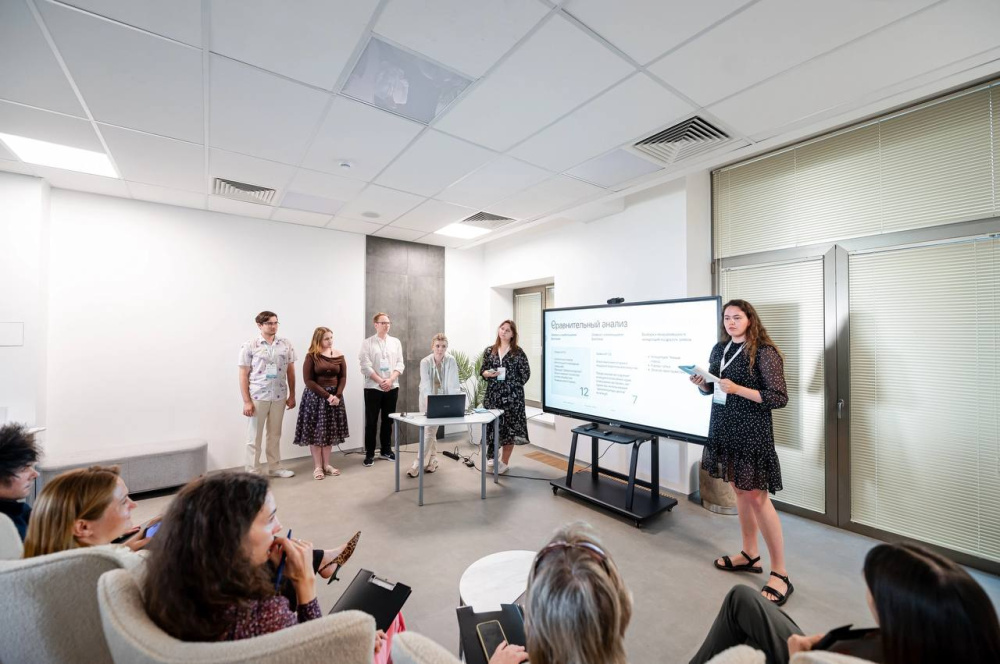 Aleksandra Polyanskaya (left of monitor) and her team at the project presentation
Aleksandra Polyanskaya (left of monitor) and her team at the project presentation
Master's student of the SPbGASU Faculty of Architecture, Aleksandra Polyanskaya, took part in the School-Conference “The Future of Cities” in Sirius and became part of the team whose project for the development of the urban environment of the federal territory “Sirius” was recognized as the winner.
The School-Conference was attended by senior bachelor's and specialist's students, master's and PhD students in architectural, urban planning, environmental, biological and IT fields, whose scientific and professional activities are related to urban planning and architecture, greening of populated areas, climate-resistant design, environmental development of territories and digitalization of urban management. The participants studied advanced approaches in the field of ecology and sustainable development, visited the largest laboratory complex in Russia of the Sirius University of Science and Technology, and got acquainted with the biodiversity of the urban landscapes of the Black Sea coast.
In addition, the participants as part of teams formed by drawing lots designed their own concepts for the development of Sirius. The teams included representatives of different universities of various specialties, including architects.
"The concept proposed by our team is based on the "Bio-Techno-Oasis", which is a hybrid of nature, high technology and the idea of preserving cultural traditions. We see the city sections No. 1 and No. 2 of "Sirius" as part of the city, where nature and technology do not oppose, but rather reinforce each other. The architecture is inspired by biological forms, and the social structure is built on the principles of sustainable development and harmony with the environment, including through the use of green energy. We use self-healing materials based on mycelium or bacteria, vertical garden technology, innovative technology of green facades that generate electricity. Phytowalls filter the air and are used as a bioindicator of pollution. Wind turbines provide energy to part of the blocks," explained Aleksandra Polyanskaya.
According to the master's student, digital twins help optimize resources and scheduled maintenance of equipment. Thus, the team designed not just a "smart city", but a living organism, where "technologies adapt to people and there is no division into digital and natural - they merge in symbiosis," Aleksandra emphasized.
“Participation in the School-Conference in Sirius gave me experience working on real tasks for the development of the urban environment, skills in interdisciplinary cooperation, and helped improve my professional skills,” concluded Aleksandra Polyanskaya.